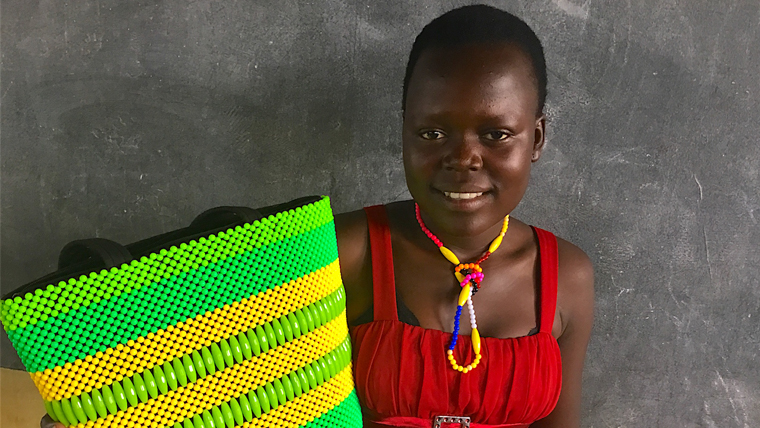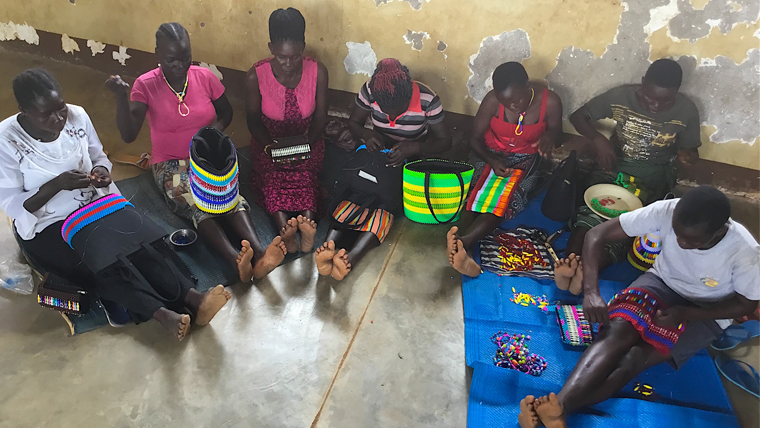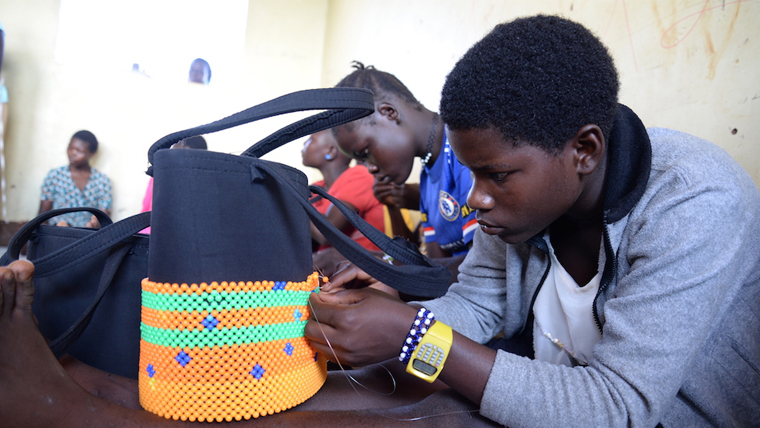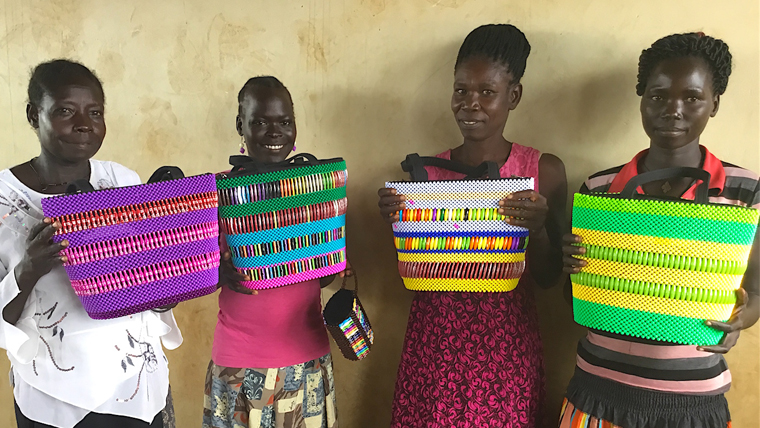Threading success: Refugee youth reaping rewards from life skills training
By Moses Mukitale
Bravery like Seventeen-year-old Lillias’ is hard to find.
Amidst the challenges and hardships of being a refugee, she still manages to keep her head high.
The war in South Sudan claimed her father and forced her to run to Uganda with her six siblings.
“We left our mother behind and I am not sure whether she is dead or alive,” Lillias says.

Lillias and her siblings spent close to a week on the journey to Uganda but this, she says, was not her greatest nightmare. Her major worry was taking care of her siblings once in Uganda.
"When we got here, life was so hard. I became the head of the family and all my siblings looked up to me for each and everything they wanted. This was tough on my side because I had no source of income. I tried to look around for any form of employment but it was in vain,” she says.
With no other options, Lillias resorted to selling some of the family’s monthly food rations to cater for other needs.
A recent study led by World Vision and UNCHR found that Lillias’ situation was, unfortunately, all too common. Children and youth make up the vast majority of the 1 million South Sudanese refugees in Uganda. With few employment opportunities, the majority of refugee families rely solely on food assistance and are forced to cut the amount of food they eat, eat less frequently or borrow food from other refugees.

Realizing the growing problem, World Vision is helping young people get skills to earn income, thanks to a grant from UNICEF.
Lillias is among a group of six young refugee women who learned to create brightly coloured beaded handbags, purses, necklaces, earrings and bangles. Within a few weeks, Lillias learned to quickly hook beads onto plastic strings and then hinge them together to make any desired item.
“When World Vision brought the life skills training in my settlement I did not hesitate to enrol. We were trained in several disciplines but I chose beading. I learnt how to make handbags, purses, bangles and necklaces, all with beads. After the one-week training, we were given start-up kits and tools to begin making our own products’’ Lillias tells me.

Lillias and the five others in her group are among the 438 beneficiaries empowered by World Vision through a vocational life skills training in Bidi bidi refugee settlement in 2017. The training primarily targeted youths though it also benefited a few adults who work as child protection case workers.
Lillias has so far sold 10 bags for UGX500,00 (£10) each. Most of her products are bought by host community members in local markets.
“I am now able to meet the majority of our needs. Every week I am assured of selling something at the market. Most of us who took the skills training seriously are benefitting from it,’’ Lillias says.
Lillias’ says there is a lot of demand for beaded products.

'During day time I am at school. I work in the evenings plus over the weekends. This gives me less work time. I will train my siblings and make sure we all work together as a family during weekends.’’ she adds.
Lillias is also looking at the prospect of setting up a shop inside the refugee settlement, where her customers can find all her products. But this, she says, is a long term plan.
The youth skills training programme was a one-off initiative funded by UNICEF at Bidibidi refugee settlement. With more assured funding, the program will be able to reach more refugee youths.
Find out how you can support our work with South Sudanese refugees in Uganda.